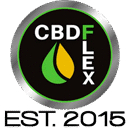CBD Oil for ADHD: Examining the Legal and Regulatory Landscape
Interest in alternative therapies for managing attention deficit hyperactivity disorder (ADHD) has surged in recent years. Among these alternatives, CBD Oil for ADHD…
Table of contents
Interest in alternative therapies for managing attention deficit hyperactivity disorder (ADHD) has surged in recent years. Among these alternatives, CBD Oil for ADHD has caught the attention of many parents and adults looking for natural options to support traditional treatments. However, while anecdotal reports suggest potential benefits, the legal and regulatory framework surrounding CBD products—especially when marketed for ADHD—remains complex and evolving. In this post, we explore the current legal landscape, examine the regulatory challenges, and discuss what consumers need to know before considering CBD Oil for ADHD.
Understanding ADHD and the Rise of CBD Oil
ADHD is a common neurodevelopmental disorder characterized by inattention, hyperactivity, and impulsivity. Although evidence-based treatments exist—such as stimulant medications and behavioral therapies—many individuals seek alternative or complementary approaches. This has led to growing interest in natural remedies, including CBD Oil for ADHD. Derived from the cannabis plant, cannabidiol (CBD) is non-psychoactive and has been studied for its anti-inflammatory and anxiolytic properties. However, its use for ADHD remains controversial due to a lack of robust clinical research.
The Legal Status of CBD Oil for ADHD in the United States
The legal status of CBD varies widely depending on its source and state regulations. Under the 2018 Farm Bill, hemp-derived CBD containing less than 0.3% THC is federally legal. This means that many products marketed as CBD are available legally across the United States. However, because CBD is derived from cannabis, which is still classified as a Schedule I controlled substance at the federal level, there are important nuances:
- Hemp vs. Marijuana-Derived CBD: Only hemp-derived CBD is federally legal when it meets the THC threshold. Products derived from marijuana remain subject to stricter state laws.
- FDA Regulations: The U.S. Food and Drug Administration (FDA) has approved only one CBD-based drug (Epidiolex) for specific forms of epilepsy. No CBD product has been approved for ADHD, and the FDA warns against unsubstantiated therapeutic claims.
- State-Level Variations: While most states permit the sale of hemp-derived CBD products, some states impose additional restrictions or have not fully aligned with federal law. This patchwork of regulations creates uncertainty for consumers interested in CBD Oil for ADHD.
Regulatory Challenges and Industry Oversight
The regulatory landscape for CBD products is evolving, with agencies such as the FDA and FTC playing key roles in enforcing marketing standards. Companies making therapeutic claims for CBD products must provide robust scientific evidence—a requirement that many have not met. Recent warning letters from the FDA highlight that products claiming to treat ADHD or other conditions without proper approval violate federal law. Key points include:
- Unsubstantiated Claims: Firms marketing CBD for ADHD without adequate clinical trials face regulatory scrutiny.
- Labeling and Quality Control: Due to inconsistent product quality and labeling practices, consumers may not be receiving the dosage or purity advertised specially on products like cbd roll on for pain.
- Research Limitations: Federal restrictions have historically limited research on CBD, leaving a gap in understanding its effectiveness and safety for ADHD.
Challenges and Considerations for Consumers
For those considering CBD Oil for ADHD as an adjunct therapy, it is essential to weigh potential benefits against regulatory uncertainties and safety concerns:
- Lack of Clinical Trials: While some anecdotal evidence exists, rigorous, large-scale clinical trials specifically evaluating CBD for ADHD are still lacking.
- Potential Drug Interactions: CBD can interact with other medications metabolized by liver enzymes, which is especially concerning if taken alongside conventional ADHD medications.
- Product Variability: The unregulated nature of many CBD products means that quality and CBD concentration can vary widely. Consumers should only purchase products that are independently verified and come with a Certificate of Analysis (COA).
- Consult a Healthcare Provider: Before trying any new treatment, discuss its potential risks and benefits with a trusted medical professional.
The Future of CBD Oil for ADHD: Research and Legal Reforms
As the interest in CBD Oil for ADHD grows, so does the call for more research and clearer regulatory pathways. The evolving legal landscape suggests that:
- Increased Research Funding: Changes in federal policy, including the easing of restrictions on CBD research, may lead to more clinical studies examining its efficacy for ADHD.
- Regulatory Clarifications: The FDA is working on establishing guidelines that could eventually allow CBD products to be marketed for medical purposes if they meet safety and efficacy standards.
- Improved Quality Control: Enhanced regulatory oversight may help standardize CBD products, ensuring that consumers receive high-quality, accurately labeled products.
These steps may lead to clear answers about CBD Oil for ADHD.
Conclusion
CBD Oil may help manage ADHD symptoms, but use cautiously.. Ongoing research and potential regulatory reforms may eventually provide clearer guidance on its safety and effectiveness. Anyone considering CBD Oil for ADHD should consult a healthcare provider.
FAQs

1. What is CBD Oil for ADHD?
CBD Oil for ADHD refers to cannabidiol oil derived from hemp that is marketed as a natural remedy to help manage ADHD symptoms, although it is not FDA-approved for this use.
2. Is CBD Oil for ADHD legal?
Hemp-derived CBD containing less than 0.3% THC is federally legal in the United States; however, state laws vary, and CBD products making therapeutic claims (including for ADHD) are not approved by the FDA.
3. What are the regulatory challenges associated with CBD Oil for ADHD?
The main challenges include inconsistent product quality, unsubstantiated health claims, limited clinical research, and a complex regulatory framework that differs between states and the federal government.
4. Are there any FDA-approved CBD products for ADHD?
No, the FDA has only approved Epidiolex for certain seizure disorders. There are currently no FDA-approved CBD products for ADHD, and any claims to the contrary are unsubstantiated.
5. What should consumers consider when purchasing CBD Oil for ADHD?
Consumers should ensure the product is hemp-derived, has a Certificate of Analysis (COA), understand the dosing variability, and consult with a healthcare provider to avoid potential interactions with other medications.







